Copper(II) 1,2,3,4,8,9,10,11,15,16,17,18,22,23,24,25-hexadecafluoro-29H,31H-phthalocyanine
Synonym(s):F16CuPc
- CAS NO.:14916-87-1
- Empirical Formula: C32CuF16N8
- Molecular Weight: 863.922
- MDL number: MFCD00274642
- SAFETY DATA SHEET (SDS)
- Update Date: 2025-01-27 09:38:02

What is Copper(II) 1,2,3,4,8,9,10,11,15,16,17,18,22,23,24,25-hexadecafluoro-29H,31H-phthalocyanine?
The Uses of Copper(II) 1,2,3,4,8,9,10,11,15,16,17,18,22,23,24,25-hexadecafluoro-29H,31H-phthalocyanine
Copper(ii) 1,2,3,4,8,9,10,11,15,16,17,18,22,23,24,25-hexadecafluoro-29h,31h-phthalocyanine (CAS# 14916-87-1) is an organometallic complex which functions as an organic photodetector for near-IR light. Also functioning as a catalyst, Copper(ii) 1,2,3,4,8,9,10,11,15,16,17,18,22,23,24,25-hexadecafluoro-29h,31h-phthalocyanine can facilitate the electrochemical reduction of carbon dioxide to ethylene in aqueous media.
The Uses of Copper(II) 1,2,3,4,8,9,10,11,15,16,17,18,22,23,24,25-hexadecafluoro-29H,31H-phthalocyanine
F16CuPc can be used as an electron transporting layer for semiconducting applications such as an electron accepting material for organic photovoltaic cells and as a catalyst in biomimetic sensors. It may also be used in the fabrication of organic thin film transistors(OTFTs) and quartz crystal microbalance(QCM) based sensors.
General Description
Copper(II) 1,2,3,4,8,9,10,11,15,16,17,18,22,23,24,25-hexadecafluoro-29H,31H-phthalocyanine(F16CuPc) is an organic molecule that can be used as an electron transporting material with good air-stability and an electron mobility of 0.11 cm2/Vs . It is majorly used in a variety of energy conservation based applications.
Properties of Copper(II) 1,2,3,4,8,9,10,11,15,16,17,18,22,23,24,25-hexadecafluoro-29H,31H-phthalocyanine
| Melting point: | >300 °C (lit.) |
| form | powder to crystal |
| color | Blue to Dark blue to Dark purple |
| CAS DataBase Reference | 14916-87-1 |
Safety information for Copper(II) 1,2,3,4,8,9,10,11,15,16,17,18,22,23,24,25-hexadecafluoro-29H,31H-phthalocyanine
Computed Descriptors for Copper(II) 1,2,3,4,8,9,10,11,15,16,17,18,22,23,24,25-hexadecafluoro-29H,31H-phthalocyanine
| InChIKey | FJAOBQORBYMRNO-UHFFFAOYSA-N |
| SMILES | C12=NC3=NC(=NC4=C5C(C(F)=C(F)C(F)=C5F)=C5N=C6C7C(F)=C(F)C(F)=C(F)C=7C(=N6)N=C(C6C(F)=C(F)C(F)=C(F)C1=6)N2[Cu]N45)C1C(F)=C(F)C(F)=C(F)C3=1 |c:4,t:0,19,35| |
New Products
3-Iodophenylacetic acid 3-Pyridineacetonitrile, α-hydroxy- 2-Propanamine, 1-chloro-, hydrochloride (9CI) 3-(hexyloxy)-4-(pyridin-3-yl)-1,2,5-thiadiazole 2-Hexyn-1-ol Dibenzo-18-crown-6 Nickel(II) perchlorate hexahydrate, 98% 4-Bromophenylacetonitrile, 95% 3-Bromo-4-fluoroaniline, 97% Sodium tetraborate decahydrate, 98% Palladium(II) acetate, trimer, Pd 99% 4-Bromo-2-chlorotoluene, 97% N N Dimethylformamide Dimethyl Acetal (Dmf Dma) 2,3-Dichloro Benzoyl Cyanide [Side Chain] Bis(2-Chloroethyl) Amine Hydrochloride L-Glutamic Acid Diethyl Ester Hydrochloride 5-(Difluoromethoxy)-2-Mercaptobenzimidazole 1-Ethyl-3-(3-Dimethylaminopropyl)-Carbodiimide Hydrochloride [EDC Hcl] 1,4-Napthoquinone Bromoiodomethane Sodium Bicarbonate Methylene Dichloride (MDC) Ethyl Acetate Indole-3-Carbinol (I3C)Related products of tetrahydrofuran
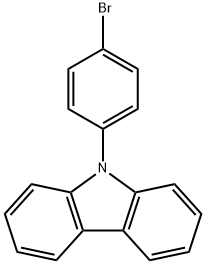
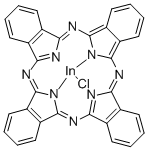
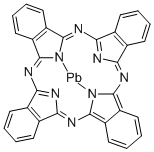
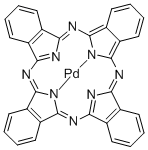
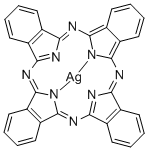
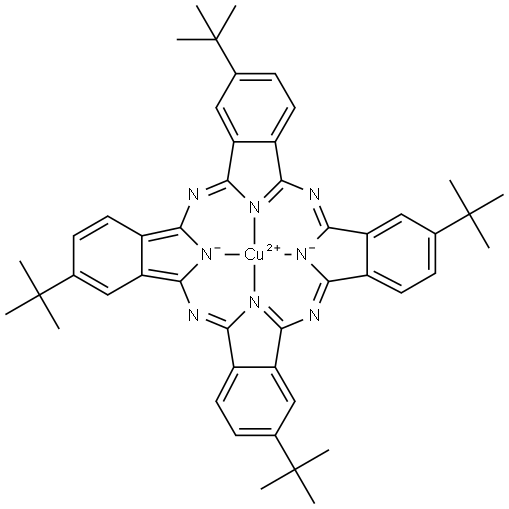
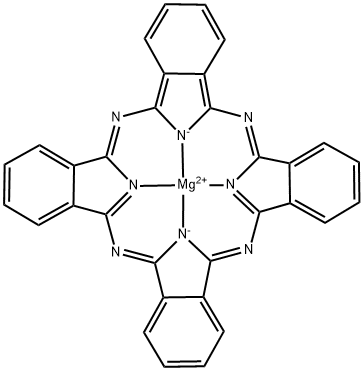
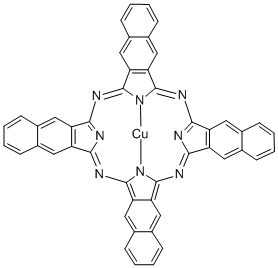
You may like
-
 Copper(ii) 1,2,3,4,8,9,10,11,15,16,17,18,22,23,24,25-hexadecafluoro-29h,31h-phthalocyanine 95% CAS 14916-87-1View Details
Copper(ii) 1,2,3,4,8,9,10,11,15,16,17,18,22,23,24,25-hexadecafluoro-29h,31h-phthalocyanine 95% CAS 14916-87-1View Details
14916-87-1 -
 1,2,3,4,8,9,10,11,15,16,17,18,22,23,24,25-Hexadecafluorophthalocyanine Copper(II) (purified by sublimation) CAS 14916-87-1View Details
1,2,3,4,8,9,10,11,15,16,17,18,22,23,24,25-Hexadecafluorophthalocyanine Copper(II) (purified by sublimation) CAS 14916-87-1View Details
14916-87-1 -
 Copper(II) 1,2,3,4,8,9,10,11,15,16,17,18,22,23,24,25-hexadecafluoro-29H,31H-phthalocyanine CAS 14916-87-1View Details
Copper(II) 1,2,3,4,8,9,10,11,15,16,17,18,22,23,24,25-hexadecafluoro-29H,31H-phthalocyanine CAS 14916-87-1View Details
14916-87-1 -
 17604-74-9 3-Pyridineacetonitrile, α-hydroxy- 98+View Details
17604-74-9 3-Pyridineacetonitrile, α-hydroxy- 98+View Details
17604-74-9 -
 Cyclohexane, (2-propynyloxy)- 67967-07-1 98+View Details
Cyclohexane, (2-propynyloxy)- 67967-07-1 98+View Details
67967-07-1 -
 2-Propanamine, 1-chloro-, hydrochloride (9CI) 98+View Details
2-Propanamine, 1-chloro-, hydrochloride (9CI) 98+View Details
5968-21-8 -
 3-Iodophenylacetic acid 1878-69-9 98+View Details
3-Iodophenylacetic acid 1878-69-9 98+View Details
1878-69-9 -
 132945-75-6 (S)-1-Boc-3-methanesulfonyloxy-pyrrolidine 98+View Details
132945-75-6 (S)-1-Boc-3-methanesulfonyloxy-pyrrolidine 98+View Details
132945-75-6
